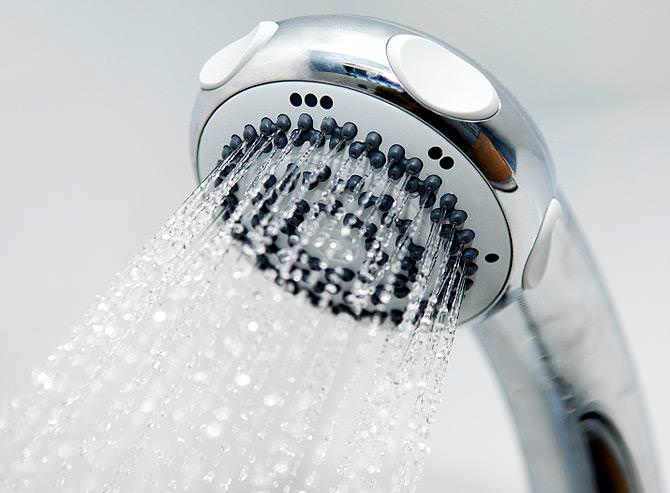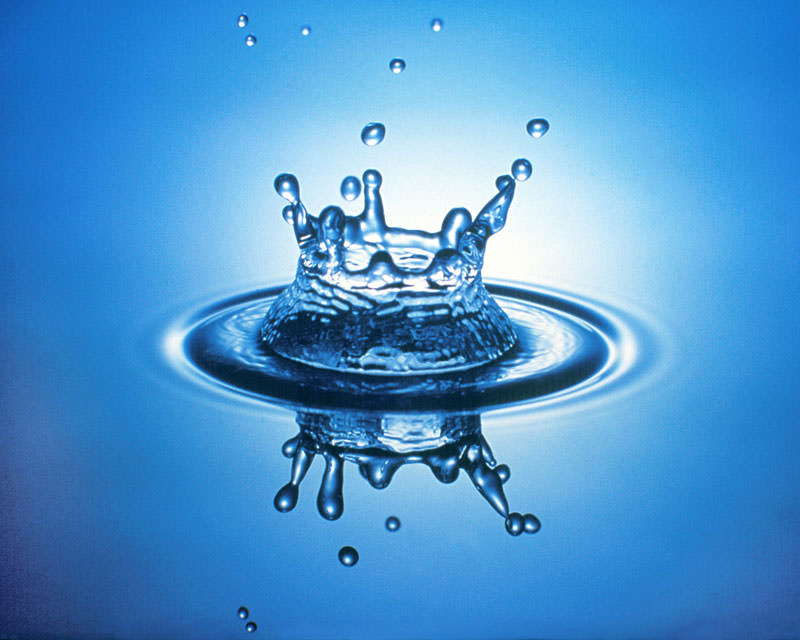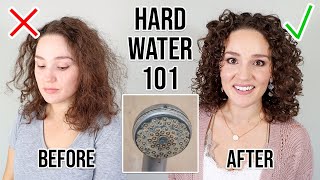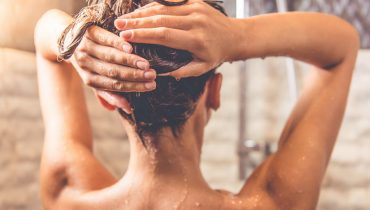How Hard Water Affects Your Hair Care Routine
 I think one of my biggest pet peeves is a dirty kitchen; I cannot cook unless my kitchen is spotless so if you are hungry and you want breakfast you might have to give me 20 minutes if I head to the kitchen and it is a total mess.
I think one of my biggest pet peeves is a dirty kitchen; I cannot cook unless my kitchen is spotless so if you are hungry and you want breakfast you might have to give me 20 minutes if I head to the kitchen and it is a total mess.
Having said that, before going to bed, I usually make sure everything is spotless and the dishwasher is on so that I can wake up to clean dishes, pots and utensils.
The only problem is, despite running the dishwasher in an effort to staying ahead of the game, the dishes never ever come out spotless.
Instead they have little marks all over them as if I didn’t just spend an arm and a leg on my fancy stainless steel dishwasher.
I finally figured out that it wasn’t the dishwasher that was the problem, it was the water. Yes my friends, I am a woman living with hard water, and boy is it annoying.
What Is Hard Water?
Hard water means that the water that leaves your faucet contains dissolved minerals such as silicon, iron*, calcium and magnesium*. These metals are some tricky little S.O.B’s things as they can make your cleansers and soaps virtually ineffective.
Even worse, they cause a ton of buildup on your hair every time you spray, wash or accidentally fall head first in a bucket of water. One of the best descriptions I have seen so far on how hard water affects the individual strand is comparing it to scales on a fish.
We all know how rough to the touch scales are and how much of a barrier it creates between your fingers and the actual skin of the fish. Well its pretty much the same thing, the barrier is so strong there is no way moisture is entering the strand despite what ingredients your $50.00 jar of conditioner has in it, your hair will remain dry dry dry.
How To Determine If Your Water Is Hard
Luckily there is a simple test that you can conduct to get a preliminary answer without doing a full on chemical test with a city official.
Get an empty bottle and put some water in it filling it half way. Empty the bottle and repeat, this time adding a few drops of dishwashing liquid, maybe about 5 to 6 drops.
Put the cap back on the bottle and shake it like a Polaroid picture, if your bottle is full of suds to the point where the suds are flowing out when you remove the cap, then you do not have hard water. Sigh in relief and go on about your business.
 On the other hand if you are struggling to get suds, and they don’t seem to last in your bottle then chances are you do have hard water.
On the other hand if you are struggling to get suds, and they don’t seem to last in your bottle then chances are you do have hard water.
You can ditch the bottle test all together and just get a water test that works similar to that of a pregnancy test. These are very common and can be ordered online, if you want something a bit more sophisticated and fool proof.
How To Prevent Hair Buildup
If you have hard water, then the best place to start when trying to avoid build up is with a great water filter*.
I will be honest, making the initial investment for one of these things especially for the shower can be a little daunting, but so worth it once you see the difference it makes with your hair and increased effectiveness of your products.
Water filters remove the metals from the water allowing your water to be more effective when cleansing your hair and probably even more important making it more healthy for your family.
Another solution to hair buildup is a chelating shampoo* which are made to remove metals and other chemicals that may have been deposited to the hair strand.
You will find chelating shampoos (some clarifying shampoos also chelate the hair) in the gym bags of many swimmers because to remove the chlorine. Removing chlorine from the hair does require something a bit more special than just tons of sulfates.
With extreme removal of buildup means more dryness and the need for extra care when conditioning. Make sure your deep conditioning* game is on point because you don’t want to trade one problem for another.
If you are an all natural kind of girl and you prefer to use something a little more closer to nature, then regular apple cider vinegar* rinses might work to loosen up some of the buildup.
We would recommend that you do these rinses often though because sometimes hard water can be a bit relentless. The same thing holds true about conditioning your hair very well after every wash when on a strict clarifying regimen.
Other solutions
If you decide to get a plumber to help reduce the lime scale in your water, you might suggest that he use a magnetic water conditioner. These are little devices that can be attached to your pipes that are believed can make hard water a bit softer.
There is a lot of debate surrounding if these little doohickeys actually work, the best thing to do is speak with your plumber and try it to see if it actually the best solution for your case or not.
Some other not so practical solutions might be purchasing bottled water to wash your hair or adding lemon juice to your water which can significantly reduce water hardness, but it also makes the water more acidic too which might not be too healthy for your hair in the long run.
Are you living with hard water? Comment below!



